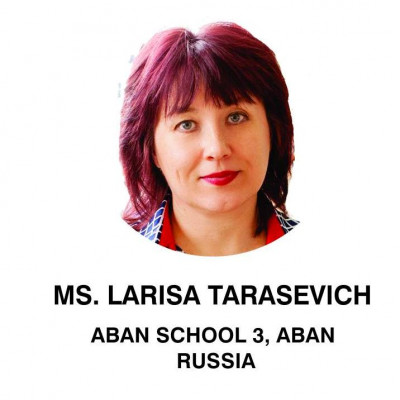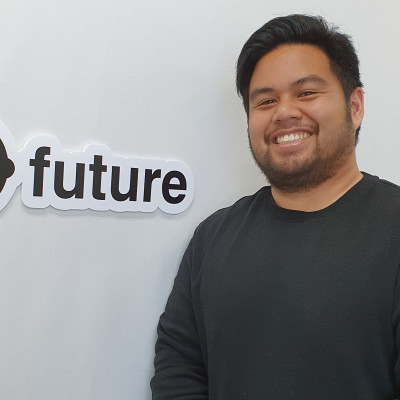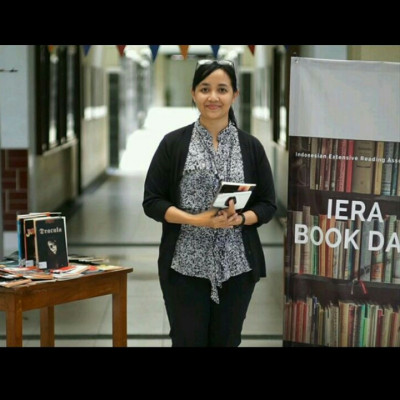Sessions / Young Learners
Global Reading Club to Inspire Future Thinkers Around the World #1596
Our project promotes extensive reading in English for upper secondary classes around the world. It consists of three phases including video book-report exchanges, live read-aloud sessions, writing workshops, and webinars that raise cultural awareness between participants through collaborative online work. Sharing reading experiences enables teen students to explore themselves and become empathetic and critical thinkers.
English Learning Achievement in Extensive Reading Class through Digital Literacy Practices #1571
This article aims to describe how learners can develop and implement digital literacy practices to improve their English learning in Extensive Reading class. Three factors that contribute to digital technology's advantages are more comfortable access to reading resources, various reading resources are available, and reading resources are updated.
Tips and Ideas for Phonics Readers in the Classroom #1561
Do you use phonics readers in your class? Discover some tips and ideas on how to use them with your students. With e-future's Smart Phonics Readers, students will be given a gentle first step into reading for all beginning readers.
From Extensive Reading to Creative Writing #1535
Reading for pleasure inspires young learners to create their own stories and poems. Writing stories with cultural issues gives students opportunity to show their world. Student-made book exchange enables students to explore the cultural traditions of other countries and become more motivated readers.
Turning Guided Story Creation into a Reading Library in Primary EFL #1564
In this presentation you will learn about the process of co-creating stories with students using the method of Teaching Proficiency through Reading and Storytelling (TPRS), and how these stories, based on student-made materials, can then be preserved in both digital and print libraries.
Reflection on the Practice of Extensive Reading in China #1546
We are an English training institution that has practiced extensive reading for two years. We have achieved lots of extensive reading results and found some problems with extensive reading. In the process, we have combined extensive reading and intensive reading to help more children benefit from reading.
Extensive Reading Using Authentic Materials with Elementary and Secondary EFL Students #1556
This presentation will review an 8-week study that used authentic digital books with elementary and secondary students learning English in a foreign language setting. Participants were at the basic levels of CEFR. Study procedures and outcomes will be discussed.
Comic Readers in the EFL Classroom? Yes, of course! #1703
Are you looking for fun and easy reading materials for your students? Have you ever thought about using comic readers with your students? e-future's Graded Comic Readers are fun and engaging stories designed to help EFL students improve their overall English language abilities. Your students will have fun and gain confidence as they learn new vocabulary and grammar, while improving their reading, speaking, and listening skills. Comic Readers not only help students become successful language learners, but also allow student to develop a positive association with reading. This session will 1) introduce e-future's Graded Comic Readers, 2) explain the benefits of using comic readers and 3) provide activity ideas for comic readers.
The implementation of English Literacy Program in SPK School Setting During the Ongoing COVID-19 Pandemic #1567
In this presentation, we will present the implementation of the English Literacy Program in a Multilingual and Multicultural school setting during the ongoing COVID-19 pandemic in Indonesia. This literacy program is unique because it should nurture our primary students' English literacy from diverse mother tongues and cultures.
Using Graded Reader with Young Learners to explore Targets of the UN SDGs. #1710
Extensive Reading means children engage with a text for a longer time, in a deeper way. Reading about children of their own age who have adventures related to the Sustainable Development Goals can awaken their curiosity too. This video will explore some practical, fun ways of encouraging this.
Our Road in Practicing ER in China: Background, Practice and Reflections #1702
This session looks at the background of Practicing ER in China and asks why it is difficult to set up an ER program in China. Problems and Solutions include: how to choose reading materials; how to guide students to find books at the right level and how to assess. We will also reflect on how to Run ER program in the Future.
Setting up ER Program to Empower Community: A Story from IERA #1566
The presentation aims at sharing best practices and showing opportunities of setting up ER programs in challenging circumstances like in Indonesia. It is hoped that what IERA has done could inspire other communities that plan to set up ER programs in their respective places.
How Do I Get My Students to LOVE Reading? #1654
Explore the importance of the classroom library and its relationship to reading achievement. Identify the guidelines for a quality classroom library. Discover how to use the classroom library effectively to increase independent reading
What Makes a Reader Read On? #1553
How to write a graded reader that engages and encourages the reader to read on.
The Implementation of Extensive Reading Approach in Online Second Language Instruction #1541
I will discuss the integration of the Extensive Reading Approach into online videoconferencing teaching. How can teachers help students accumulate academic vocabulary, build autonomy, improve literacy skills (reading and writing skills), and become life-long learners remotely? I will engage participants with engaging online activities during the workshop.
Raising the Voices of Young Learners: Experiences in Reading for Pleasure #1552
This presentation reports the findings of a qualitative PhD study carried out with young learners. Extensive reading, reading circles and reading aloud were implemented. Action research was used to examine the L2 reading process. Findings show the participants’ L2 reading accounts.


















